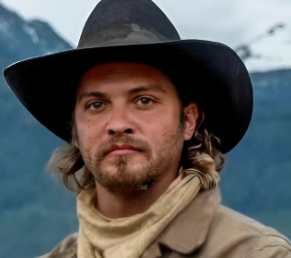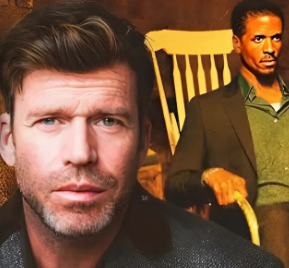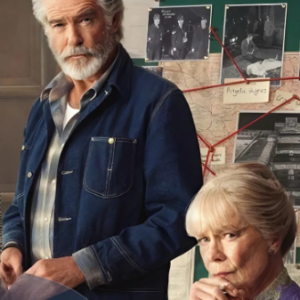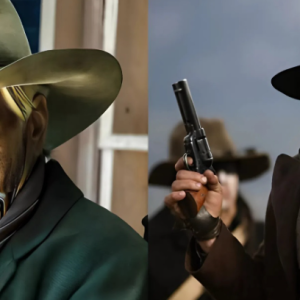Taylor Sheridan has rapidly become one of the most prolific and influential creators in contemporary television, a true powerhouse in Hollywood with a staggering array of projects, particularly on Paramount+. While many of his shows, such as Landman, Lioness, and Mayor of Kingstown, have garnered significant critical acclaim and viewership in their own right, none have historically managed to replicate the sprawling franchise success of his flagship series, Yellowstone. However, a significant shift in this pattern is now underway, marking a new chapter in Sheridan’s expanding creative empire: Tulsa King is set to become the first non-Yellowstone-affiliated series to launch its own dedicated spinoff.
Sheridan’s creative output is immense, demonstrating an unparalleled ability to craft compelling narratives across diverse genres. His shows consistently deliver high-stakes drama, intricate character development, and a distinctive sense of place, resonating deeply with audiences. Landman, for instance, has even surpassed Yellowstone’s viewership in certain metrics, underscoring the broad appeal of his storytelling. Yet, it is Yellowstone and its universe that have, until now, defined the very concept of a multi-series franchise within his portfolio. The saga of the Dutton family, vividly brought to life across Yellowstone, 1883, and 1923, intricately weaves together generations of struggle to control their vast Montana ranch. This interconnected narrative, rich in history, family drama, and the harsh realities of the American West, established a blueprint for expansive, serialized storytelling that streaming platforms actively seek. These prequels delve deep into the Dutton lineage, exploring the foundational events that shaped their legacy, providing a compelling historical context that few other series have matched.
The announcement of a Tulsa King spinoff, titled NOLA King, featuring Samuel L. Jackson, signifies a momentous departure from this established trend. Jackson is slated to appear in Tulsa King season 3 before headlining his own series, set to unfold in the vibrant and complex landscape of New Orleans, Louisiana. This development firmly positions Tulsa King as the second major franchise to emerge from Sheridan’s fertile imagination, a testament to its standalone potential and unique appeal. While Sheridan’s direct involvement with Tulsa King has evolved – he initially created only the pilot episode, with Dave Erickson taking the reins as showrunner for season 3 – the show bears his unmistakable thematic hallmarks, blending gritty realism with engaging character arcs and unexpected humor. Its success is rooted in its distinctive premise and the magnetic performance of Sylvester Stallone as Dwight “The General” Manfredi, an aging New York mobster abruptly exiled to Tulsa, Oklahoma, where he endeavors to build a new criminal enterprise.
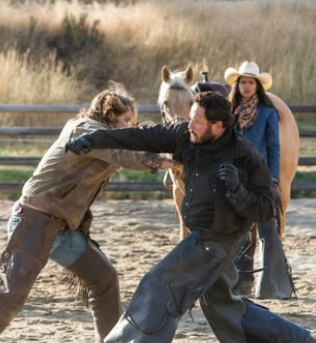
The decision to expand Tulsa King into a franchise is hardly surprising, given the immense narrative elasticity inherent in its concept. The series presents a world ripe for exploration, offering numerous avenues for expansion that could rival the scope and complexity of the Yellowstone universe. One obvious path, subtly hinted at in Tulsa King season 2, involves Dwight Manfredi’s potential to establish and oversee criminal operations in various cities across the United States. This model would allow for geographically diverse spin-offs, each focusing on a different urban setting and the unique challenges and opportunities that arise from expanding a mob empire. NOLA King is already poised to initiate this strategy, transporting viewers to a new city with its own distinct culture, criminal underworld, and cast of characters, all while maintaining a conceptual link to Manfredi’s broader ambition.
Beyond geographical expansion, Tulsa King offers a rich tapestry of compelling characters whose backstories and future exploits could easily sustain their own series. The show has introduced a rogues’ gallery of memorable figures, from Frank Grillo’s Bill Bevilaqua to Neal McDonough’s Cal Thresher, each with enough depth and intrigue to anchor a standalone narrative. Spinoffs could delve into the origins of these crime kingpins, exploring their rise to power, their personal struggles, and their intricate relationships within the underworld. This character-driven approach would allow for varied storytelling within the same universe, moving beyond Dwight’s immediate sphere to illuminate other facets of the criminal landscape.
Moreover, Tulsa King could readily adopt the prequel strategy so effectively utilized by Yellowstone. The series has only scratched the surface of Dwight Manfredi’s extensive life as a mobster before his incarceration. A prequel series exploring his early life in New York, his rise through the ranks of organized crime, and the formative experiences that shaped his character would offer a fascinating counterpoint to Yellowstone’s historical sagas. Such a narrative would provide a deep dive into the evolution of a different kind of American dynasty – one built on loyalty, power, and illicit enterprise. Similarly, if NOLA King proves to be a major success, Samuel L. Jackson’s character could be afforded the same treatment, with a prequel exploring his own journey into the criminal underbelly of New Orleans or other locales.

The emergence of Tulsa King as a franchise also reflects broader trends in the streaming industry, where expansive cinematic universes and reliable intellectual property are key to attracting and retaining subscribers. Paramount+ has leveraged Taylor Sheridan’s unique vision to build a formidable content library, and diversifying its franchise offerings beyond Yellowstone strengthens its position in an increasingly competitive market. While Sheridan may not be as directly involved in the day-to-day operations of Tulsa King’s future seasons or its spin-offs, his initial creative imprint and the universe he conceived provide a solid foundation. There is also always the potential for him to re-engage more substantially, guiding the overarching narrative vision as the franchise grows.
In the coming years, the trajectory of Tulsa King will be closely watched. Its ability to expand successfully, driven by the reception of NOLA King and the continued evolution of Tulsa King season 3’s storyline, will determine whether it can truly stand shoulder-to-shoulder with Yellowstone in terms of sheer scope and cultural impact. What is undeniable, however, is that Taylor Sheridan has once again demonstrated his remarkable talent for world-building, proving that his Midas touch extends far beyond the familiar landscapes of the American West, forging new empires in unexpected corners of the country. This new phase promises a more diverse and expansive Taylor Sheridan universe, where the struggles of the Duttons can now exist alongside the ambitions of the Manfredis, each carving out their own legacy in the annals of television.
